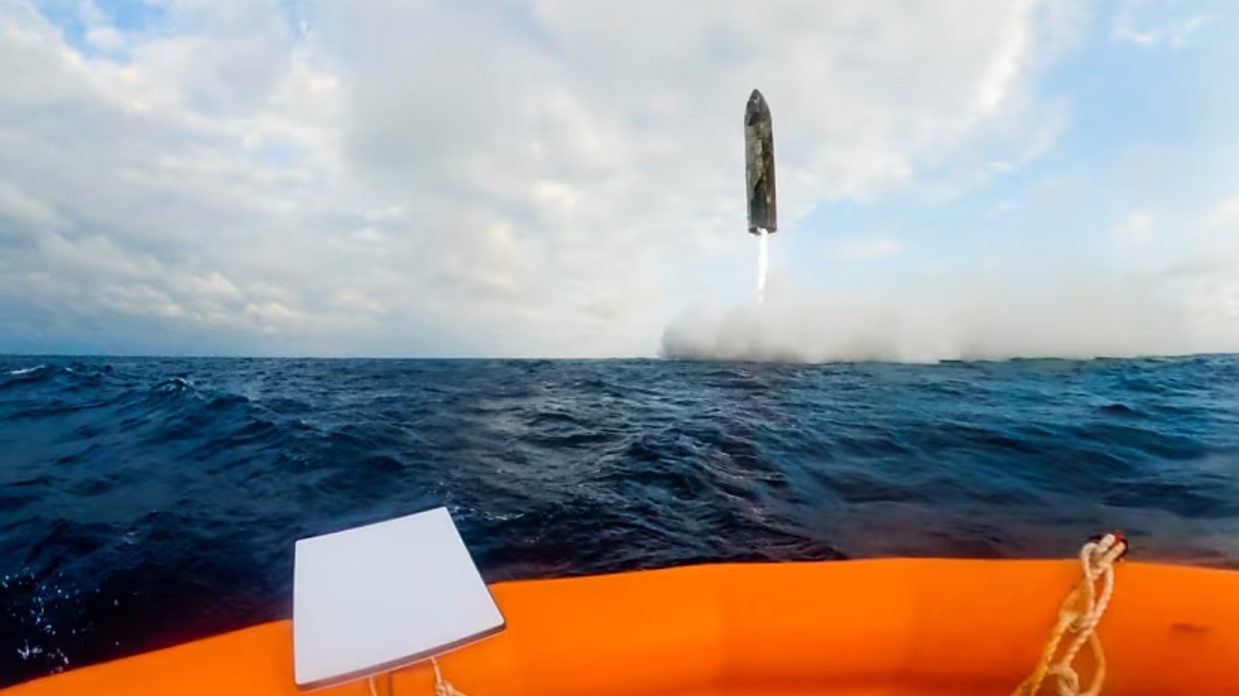While the first flight of Iran’s new Simorgh flown on 19 April 2016 from the Semnan launch site appeared, at first sight, to be a failure, most space analysts believe that the flight was simply a successful suborbital launch test flight of rocket stages. Either way, after reports that Iran’s space programme was being wound up, it has become evident that Iran is progressing with its space launch vehicles, a technology that arouses suspicion in other nations as being a front for a missile programme.
While this launch may or may not be applicable to the development of long-range ballistic missiles, on the other side of the world, on 23 April 2016, North Korea more overtly test flew a ballistic missile launched from a submarine or subsea launcher.
In the event, the missile only flew 30km, but was thought to have only been equipped with a first stage to test out the sub-sea pneumatic pop-out launch and ignition system – a system developed in the USA and Soviet Union during the 1960s (and since then by China). The system is currently used to launch ballistic missiles, such as the US Navy’s and Royal Navy’s Trident SLBM (Submarine Launched Ballistic Missile). As such, it is expected that now that the system is perfected in North Korea, it will be used for submarine launches of fully equipped, multistage, solid rocket powered SLBMs – possibly with intercontinental ranges. The UN Security Council condemned the test.
Comment by David Todd: Given that North Korea already has basic atomic weaponry and is adamant about developing small nuclear warheads for use on ballistic missies, experts believe that it can only be a matter of time before its submarines are able to cruise the oceans armed with nuclear missiles. Even if these missiles only have a range of 2,000km or so, similar to the early Western SLBMs, given North Korea’s record of threatened and actual military action, they would still pose a serious threat to world peace. Such SLBM-carrying submarines could be positioned close enough to the coast to hit most countries with little warning time.






